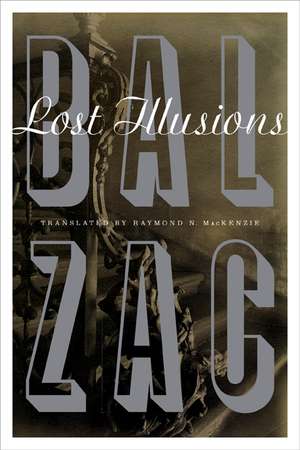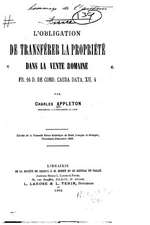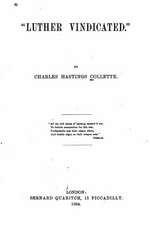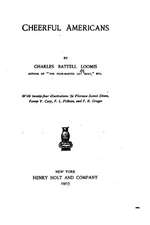Lost Illusions
Autor Honoré de Balzac Traducere de Raymond N. MacKenzieen Limba Engleză Paperback – 26 mai 2020
A new annotated translation of the keystone of Balzac’s Comédie Humaine—a sweeping narrative of corrupted idealism in a cynical urban milieu
Lost Illusions is an essential text within Balzac’s Comédie Humaine, his sprawling, interconnected fictional portrait of French society in the 1820s and 1830s comprising nearly one hundred novels and short stories. This novel, published in three parts between 1837 and 1843, tells the story of Lucien de Rubempré, a talented young poet who leaves behind a scandalous provincial life for the shallow, corrupt, and cynical vortex of modernity that was nineteenth-century Paris—where his artistic idealism slowly dissipates until he eventually decides to return home.
Balzac poured many of his thematic preoccupations and narrative elaborations into Lost Illusions, from the contrast between life in the provinces and the all-consuming world of Paris to the idealism of poets, the commodification of art, the crushing burden of poverty and debt, and the triumphant cynicism of hack journalists and social climbers. The novel teems with characters, incidents, and settings, though perhaps none so vivid as its panoramic and despairing view of Paris as the nexus of modernity’s cultural, social, and moral infection. For Balzac, no institution better illustrates the new reality than Parisian journalism: “amoral, hypocritical, brazen, dishonest, and murderous,” he writes.
In this new translation, Raymond N. MacKenzie brilliantly captures the tone of Balzac’s incomparable prose—a style that is alternatingly impassioned, overheated, angry, moving, tender, wistful, digressive, chatty, intrusive, and hectoring. His informative annotations guide the modern reader through the labyrinth of Balzac’s allusions.
Lost Illusions is an essential text within Balzac’s Comédie Humaine, his sprawling, interconnected fictional portrait of French society in the 1820s and 1830s comprising nearly one hundred novels and short stories. This novel, published in three parts between 1837 and 1843, tells the story of Lucien de Rubempré, a talented young poet who leaves behind a scandalous provincial life for the shallow, corrupt, and cynical vortex of modernity that was nineteenth-century Paris—where his artistic idealism slowly dissipates until he eventually decides to return home.
Balzac poured many of his thematic preoccupations and narrative elaborations into Lost Illusions, from the contrast between life in the provinces and the all-consuming world of Paris to the idealism of poets, the commodification of art, the crushing burden of poverty and debt, and the triumphant cynicism of hack journalists and social climbers. The novel teems with characters, incidents, and settings, though perhaps none so vivid as its panoramic and despairing view of Paris as the nexus of modernity’s cultural, social, and moral infection. For Balzac, no institution better illustrates the new reality than Parisian journalism: “amoral, hypocritical, brazen, dishonest, and murderous,” he writes.
In this new translation, Raymond N. MacKenzie brilliantly captures the tone of Balzac’s incomparable prose—a style that is alternatingly impassioned, overheated, angry, moving, tender, wistful, digressive, chatty, intrusive, and hectoring. His informative annotations guide the modern reader through the labyrinth of Balzac’s allusions.
| Toate formatele și edițiile | Preț | Express |
|---|---|---|
| Paperback (2) | 82.46 lei 3-5 săpt. | +33.03 lei 4-10 zile |
| Chicago Review Press Inc DBA Indepe – 2 iul 2022 | 82.46 lei 3-5 săpt. | +33.03 lei 4-10 zile |
| University of Minnesota Press – 26 mai 2020 | 130.03 lei 3-5 săpt. | +32.70 lei 4-10 zile |
Preț: 130.03 lei
Nou
Puncte Express: 195
Preț estimativ în valută:
24.88€ • 25.88$ • 20.54£
24.88€ • 25.88$ • 20.54£
Carte disponibilă
Livrare economică 25 martie-08 aprilie
Livrare express 08-14 martie pentru 42.69 lei
Preluare comenzi: 021 569.72.76
Specificații
ISBN-13: 9781517905439
ISBN-10: 1517905435
Pagini: 624
Dimensiuni: 152 x 229 x 43 mm
Greutate: 0.79 kg
Editura: University of Minnesota Press
Colecția Univ Of Minnesota Press
ISBN-10: 1517905435
Pagini: 624
Dimensiuni: 152 x 229 x 43 mm
Greutate: 0.79 kg
Editura: University of Minnesota Press
Colecția Univ Of Minnesota Press
Notă biografică
Honoré de Balzac (1799–1850) worked as a clerk, printer, and publisher before devoting himself entirely to writing fiction. A leading figure in the development of realism in European literature, he wrote more than one hundred volumes of stories, novellas, and novels, including Père Goriot, Eugénie Grandet, and Le Peau de chagrin.
Raymond N. MacKenzie is professor of English at the University of St. Thomas in St. Paul, Minnesota. His previous translations include Barbey d’Aurevilly’s Diaboliques, Stendhal’s Italian Chronicles, and Lamartine’s Graziella (all from Minnesota). His translation of Lost Souls, Balzac’s continuation of Lost Illusions, will be published by Minnesota in 2020.
Raymond N. MacKenzie is professor of English at the University of St. Thomas in St. Paul, Minnesota. His previous translations include Barbey d’Aurevilly’s Diaboliques, Stendhal’s Italian Chronicles, and Lamartine’s Graziella (all from Minnesota). His translation of Lost Souls, Balzac’s continuation of Lost Illusions, will be published by Minnesota in 2020.
Cuprins
Contents
Translator’s Introduction
Raymond N. Mackenzie
Lost Illusions
1. The Two Poets
2. The Parisian Adventures of a Great Man from the Provinces
3. The Ordeals of an Inventor
Introduction: The Sorrowful Confessions of a Child of the Century
Part One. The History of a Legal Case
Part Two. The Fatal Member of the Family
Translator’s Notes
Translator’s Introduction
Raymond N. Mackenzie
Lost Illusions
1. The Two Poets
2. The Parisian Adventures of a Great Man from the Provinces
3. The Ordeals of an Inventor
Introduction: The Sorrowful Confessions of a Child of the Century
Part One. The History of a Legal Case
Part Two. The Fatal Member of the Family
Translator’s Notes
Recenzii
"Whether or not Lost Illusions counts as the greatest novel ever written, as the literary scholar Franco Moretti claims, it’s a pretty magnificent one. You can read it for its combination of social scope and psychological insight, and for its cinematically vivid portraits of faces . . . and many fine phrases. . . . And then you can read Lost Illusions, as Marx read Balzac, for its account of the double-edged nature of early capitalism."—Benjamin Kunkel, Salon
"Reading Balzac, one can experience that sauntering pace and steady gaze that our forebears gave to their surroundings, speculations, and soul-searching. It's as with reading Hugo and Dumas, Thackeray and Dickens, George Eliot and Flaubert."—Pop Matters
"Among the pleasures of the novel is how neatly it is tied into the times, from some of the events of the times to, especially, the worlds of literature and theater. Balzac bases several of his characters on real figures, too, and MacKenzie's helpful endnotes succinctly place the who and what."—The Complete Review
"Between Lost Illusions and Lost Souls, in two hefty, handsome paperbacks—with scholarly trimmings to help, not impede a reader—we now have both of the novels (technically all seven novels in a trilogy followed by a tetralogy… published between 1837 and 1847 in not entirely chronological order… because Balzac?) tracing the fate of Lucien de Rubempre, in print as though they belong together, on your to-be-read lists and your shelves. They are a remarkable itinerary."—LitHub
"Now we are treated to a handsomely produced, new annotated version by Raymond N. MacKenzie, a prolific translator of 19th century French Literature who knows Balzac well, as his instructive introduction amply shows. "—Metamorphoses
"Reading Balzac, one can experience that sauntering pace and steady gaze that our forebears gave to their surroundings, speculations, and soul-searching. It's as with reading Hugo and Dumas, Thackeray and Dickens, George Eliot and Flaubert."—Pop Matters
"Among the pleasures of the novel is how neatly it is tied into the times, from some of the events of the times to, especially, the worlds of literature and theater. Balzac bases several of his characters on real figures, too, and MacKenzie's helpful endnotes succinctly place the who and what."—The Complete Review
"Between Lost Illusions and Lost Souls, in two hefty, handsome paperbacks—with scholarly trimmings to help, not impede a reader—we now have both of the novels (technically all seven novels in a trilogy followed by a tetralogy… published between 1837 and 1847 in not entirely chronological order… because Balzac?) tracing the fate of Lucien de Rubempre, in print as though they belong together, on your to-be-read lists and your shelves. They are a remarkable itinerary."—LitHub
"Now we are treated to a handsomely produced, new annotated version by Raymond N. MacKenzie, a prolific translator of 19th century French Literature who knows Balzac well, as his instructive introduction amply shows. "—Metamorphoses
















